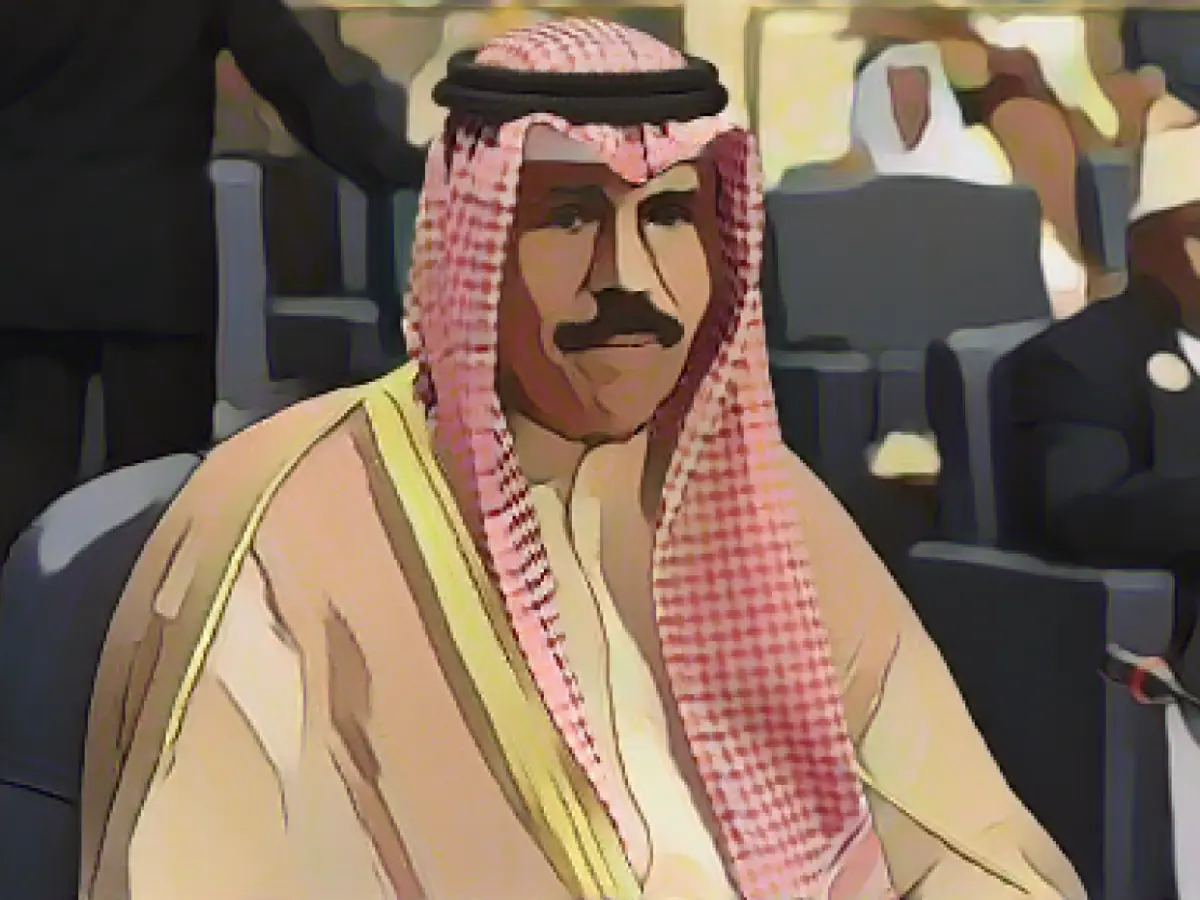Kuwait's king, Sheikh Nawaf Al-Ahmad Al-Jaber Al-Sabah, passed away at the age of 86, as announced by the state news agency, KUNA, on Saturday. He was hospitalized in November due to serious health issues, but was reportedly in a stable condition at the time, according to KUNA.
Sheikh Nawaf took the throne in September 2020, following the demise of Sabah Al-Ahmad Al-Jaber Al-Sabah, who had ruled Kuwait for 14 years. Kuwait is an Arab Gulf state with a population of over 4.2 million and the world's sixth-largest oil reserves.
The political dynamics in Kuwait after Sheikh Nawaf's demise could significantly impact global relations, given the country's strategic role in the Middle East and its crucial contribution to the global energy market.
Kuwait's Internal Uncertainties
King Sheikh Nawaf's brother, Emir Mishal Al-Ahmad Al-Jaber Al-Sabah, succeeded him. However, the transition has been marked by internal dynamics, such as the dissolution of parliament by Emir Mishal in May 2024, which has raised questions about Kuwait's political stability and democracy[1].
Impact on Global Relations
- Regional Stability: Kuwait's robust international relations, particularly within the Arab world, are expected to continue. The country plays a significant role in global economic forums and organizations, such as OPEC, due to its vast oil reserves[2].
- Arab League and GCC: As a member state of the Arab League and a key player in the GCC, Kuwait's political transition may influence regional dynamics. The GCC has been actively engaged in regional issues, including the Syrian crisis, and Kuwait's leadership will likely continue to participate in these efforts[5].
Impact on the World's Energy Market
- Oil Production and Diversification: Kuwait is heavily dependent on oil exports, which account for nearly all of its foreign exchange receipts. The country is working to diversify its economy, but the transition period may affect its ability to achieve this goal quickly. The looming end of the oil era underscores the need for Kuwait to transform its economy to lessen its dependence on oil[1].
- Renewable Energy Initiatives: Kuwait is moving towards renewable energy, aiming to reduce its reliance on fossil fuels. The New Kuwait Vision 2035 includes objectives to increase the use of renewable energy, with a target of 15% of local electricity coming from renewable sources by 2030. This shift aligns with global trends and utilizes Kuwait's substantial solar and wind resources[3].
In conclusion, while Sheikh Nawaf's death did not immediately impact the leadership, the subsequent political transition in Kuwait has introduced internal uncertainties. These dynamics may influence Kuwait's global relations and its approach to the energy market, particularly in light of its endeavors to diversify and transition towards renewable energy sources.
[1] Source: The Royal Institute of International Affairs [2] Source: International Monetary Fund (IMF) [3] Source: World Bank [4] Source: Middle East Institute [5] Source: Gulf Research Center







